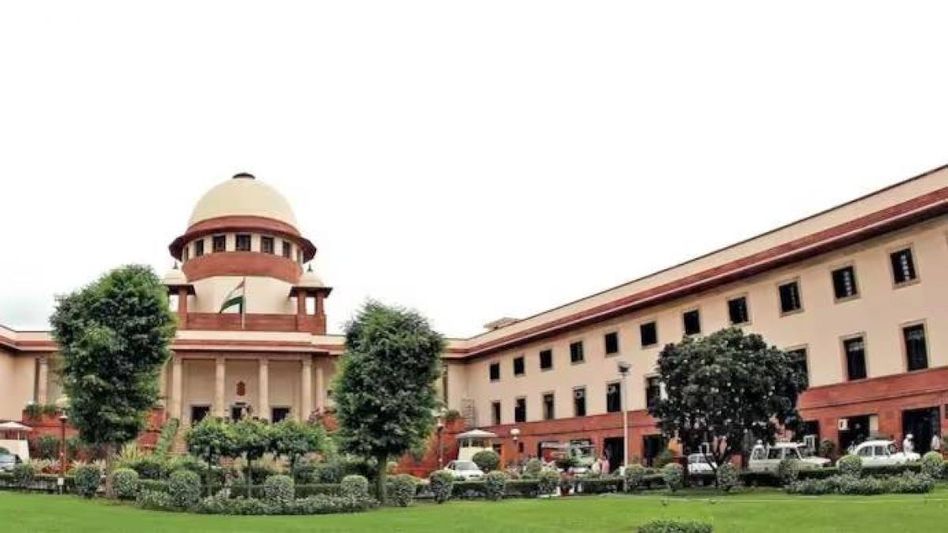Courts can grant pre-arrest bail even if FIR in another state: Supreme Court
The Supreme Court today said that courts can grant pre-arrest bail even if a case was filed in a different state in the "interest of justice".
 The Supreme Court today said that courts can grant pre-arrest bail even if a case was filed in a different state in the "interest of justice".
The Supreme Court today said that courts can grant pre-arrest bail even if a case was filed in a different state in the "interest of justice".The Supreme Court today said that High Courts and Sessions courts can grant pre-arrest bail even if a case was filed in a different state in the "interest of justice", adding that it must be done only in "exceptional and compelling circumstances".
"Considering the constitutional imperative of protecting a citizen's right to life and personal liberty, the High Court or Sessions Court should grant limited anticipatory bail in the form of interim protection... in the interest of justice with respect to FIR registered outside the territorial jurisdiction of the said court," a bench of Justices BV Nagarathna and Ujjal Bhuyan said.
Laying down guidelines for such instances, the Supreme Court said that applicants must provide a satisfactory justification in case they are unable to approach the High Court that has territorial jurisdiction.
The bench noted that the "reasonable and immediate threat to life, personal liberty, and bodily harm" and "apprehension of violation of life and liberty" are among the reasons that applicants could cite for the interim protection. It also stated that the investigating officer and the probe agency must be notified on the first date of such protection.
The top court also cautioned against the possible abuse of such powers, clarifying that the accused cannot travel to another state to only file bail pleas without clear reasons.
"Forum shopping may become order of the day (and) make the concept of territorial jurisdiction obsolete. Therefore, (it is) necessary for the High Court to consider the territorial connection between the accused and the place where anticipatory bail [has been] filed," Justice Nagarathna said.
Forum shopping defines a practice in which cases are heard at the chosen court of the litigant that is most likely to deliver a judgment in their favour.
The Supreme Court's ruling came during a hearing of a dowry case (Priya Indoria versus the State of Karnataka). In March, the top court had issued a notice on a petition by Indoria who had lodged an FIR in Rajasthan, but her accused-husband was granted anticipatory bail by a Bengaluru district judge.
Senior advocate K Paul, representing Priya Indoria, stated that different high courts have taken varied views on the matter and the Supreme Court needed to settle it.
The Supreme Court today said that the High Court must clearly state as to why the accused had approached a court in a region where the FIR was not filed. "Reasons for approaching (the) court when (the) FIR is lodged in another state must be recorded and considered in detail," it added.
The bench cited an example wherein a man hits someone with an iron rod in Goa, then flees to Raipur. "We have considered the legal framework and evolution of the safeguard of anticipatory bail," it said.
The bench mentioned the 1980 Gurbaksh Singh Sibbia & Ors vs State of Punjab case, which was based on the anticipatory bail. At the time, the Supreme Court laid down eight guidelines that the High Court and Sessions Courts must follow while exercising their discretionary powers to grant or dismiss anticipatory bail.
In the guidelines, the top court noted that caution and due care must be used while courts exercise their powers in case of anticipatory bail pleas. It also stated that the person applying for bail must have a reasonable apprehension of getting arrested for a non-bailable offence, which must then be objectively assessed by the court.
Copyright©2025 Living Media India Limited. For reprint rights: Syndications Today









